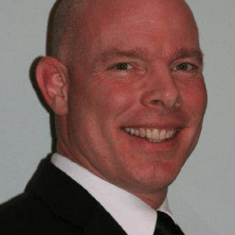Agile vs. Waterfall for Satellites: An MBSE Simulation in Innoslate
Robin Yeman and Yashwant Malaiya recently demonstrated MBSE for Satellite systems using Innoslate as their MBSE tool. They presented their study at...
1 min read
Elizabeth Steiner
:
4/11/23 4:01 PM
.png)
 Dr. Randal Allen has decades of experience in Model-Based Systems Engineering (MBSE), 6DOF Modeling & Simulation (M&S), and Guidance, Navigation, and Control (GNC) of Aerospace Systems. He is the co-author of “Simulation of Dynamic Systems with MATLAB and Simulink,” and an Associate Fellow of the American Institute of Aeronautics and Astronautics. In addition, Dr. Allen is part of the team that created the MBSE ontology, the Lifecycle Modeling Language, and serves on the Board and Steering Committee of the Lifecycle Modeling Organization.
Dr. Randal Allen has decades of experience in Model-Based Systems Engineering (MBSE), 6DOF Modeling & Simulation (M&S), and Guidance, Navigation, and Control (GNC) of Aerospace Systems. He is the co-author of “Simulation of Dynamic Systems with MATLAB and Simulink,” and an Associate Fellow of the American Institute of Aeronautics and Astronautics. In addition, Dr. Allen is part of the team that created the MBSE ontology, the Lifecycle Modeling Language, and serves on the Board and Steering Committee of the Lifecycle Modeling Organization.
Dr. Allen received a B.S. in Engineering Physics and an M.S. in Applied Mathematics from the University of Illinois (Urbana-Champaign), an Engineer’s Degree in Aeronautical and Astronautical Engineering from Stanford University, and a Ph.D. in Mechanical Engineering from the University of Central Florida, where he serves as an Adjunct Professor in the Mechanical and Aerospace Engineering department.
As part of his teaching, the University of Central Florida Mechanical and Aerospace Engineering students designed a CubeSat for their Senior Design projects. Since inception, students have been taught the 17 systems engineering processes from the NASA Systems Engineering Handbook, Applied Space Systems Engineering by Larson et al., and Real MBSE by Dr. Steven Dam, SPEC Innovations President. Learning is supplemented with material from Understanding Space by Sellers.
Over a three-year period, students have completed Mission Concept Review (MCR), System Requirements Review (SRR), System Design Review (SDR), and Preliminary Design Review (PDR) – all conducted as model-based design reviews using Innoslate as the presentation platform to stakeholders. The students also used Innoslate to update the functional and physical architectures with traceability to one another and to the requirements. Their CONOPS included the link, power, mass, and pointing budgets.
Benefits of this program include practical application of the Lifecycle Modeling Language (LML) through the use of Innoslate and professional contact with Principal Investigators (PIs) and Subject Matter Experts (SMEs) through model-based reviews, CDR, etc. New graduates will enter the workforce with practical systems engineering experience, knowledge of state-of-the-art “agile” processes, hands-on experience with enabling platforms, formal written and oral communication skills, and team-building. Thanks to Dr. Allen and the implementation of Innoslate, the next generation of Mechanical and Aerospace Engineers are fully prepared to join the industry.
Discover more successful user stories from our satisfied clients! Read their testimonials and learn how SPEC Innovations has helped businesses like yours achieve remarkable results.

Have questions about model-based systems engineering or requirements management? Talk to an expert and see how Innoslate can streamline your projects from start to finish.

Robin Yeman and Yashwant Malaiya recently demonstrated MBSE for Satellite systems using Innoslate as their MBSE tool. They presented their study at...

Model-Based Systems Engineering (MBSE) is a transformative approach to managing complex systems throughout their lifecycle. However, simply adopting...
%20(200%20%C3%97%20100%20px)%20(800%20%C3%97%20400%20px)%20(20).png)
SPEC Innovations had the pleasure of sponsoring George Mason University’s Space Day on September 10th! The event was free for everyone of all ages...